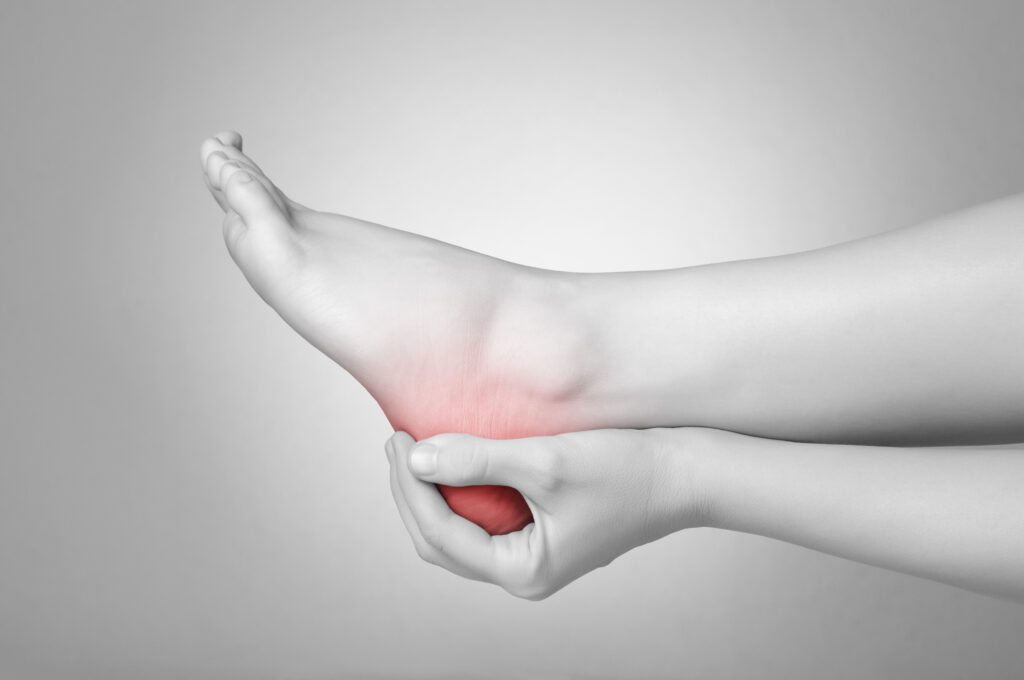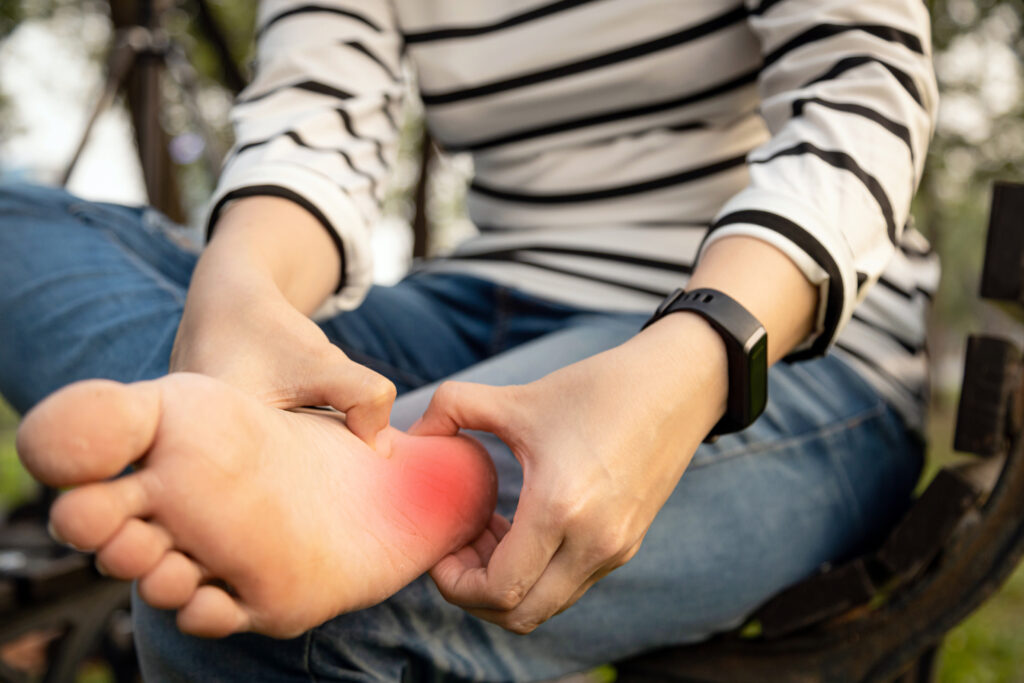Heel pain can range from a dull ache to a sharp, stabbing sensation that makes every step uncomfortable. For many people, heel pain doesn’t just affect mobility—it impacts mood, sleep, exercise, and overall quality of life.
The good news is that heel pain is highly treatable, especially when addressed early. Understanding what causes heel pain and knowing your treatment options can help you find lasting relief. If your heel pain persists or worsens, professional care is available. Call (510) 647-3744 or schedule an appointment online with Dr. Yuko Miyazaki, a trusted heel pain specialist and podiatrist in the East Bay.

How Heel Pain Affects Everyday Life
Although the heel is a small part of the body, pain in this area can have a major impact on daily activities:
- Walking becomes painful, causing many people to limit movement and avoid activities they enjoy
- Exercise and sports feel impossible, even low-impact activities that require pressure through the feet
- Daily routines become exhausting, as every step triggers discomfort or pain
Left untreated, heel pain can lead to reduced activity levels, weight gain, and declining overall health.
How Heel Pain Develops
Heel pain often begins subtly and gradually worsens over time if ignored. Many patients report that they don’t recall a specific injury—just increasing discomfort that eventually becomes severe.
In some cases, heel pain develops due to biomechanical stress elsewhere in the body. Poor alignment, gait issues, or joint problems can shift excess pressure to the heel, leading to inflammation and pain.
Heel pain may develop:
- Suddenly, after an injury or strain
- Gradually, from overuse or repetitive stress
Common Causes of Heel Pain
Several factors can contribute to heel pain, including:
- Overuse or repetitive stress, such as increased walking, running, or standing
- Ill-fitting or unsupportive footwear, especially shoes lacking proper cushioning or heel support
- Underlying medical conditions that alter foot mechanics or increase inflammation
Identifying the exact cause is essential for effective treatment.

Conditions That May Cause Heel Pain
Plantar Fasciitis
One of the most common causes of heel pain, plantar fasciitis, occurs when the thick band of tissue supporting the arch becomes inflamed. Pain is often worse in the morning or after periods of rest.
Heel Spurs
Heel spurs develop when calcium deposits form on the heel bone over time. They often occur alongside plantar fasciitis and cause gradual, worsening pain.
Arthritis
Inflammation in the joints near the heel can cause pain directly or indirectly by shifting weight and pressure onto the heel.
Achilles Tendinitis
This condition involves inflammation of the Achilles tendon, which connects the calf muscles to the heel bone. It commonly causes pain, stiffness, and swelling at the back of the heel.
Treatment Options for Heel Pain
Because heel pain has many causes, treatment must be individualized. Some cases respond well to conservative care, while others require advanced treatment.
At-Home Heel Pain Treatments
Many patients find relief with conservative strategies, including:
- Rest, ice, stretching, and massage to reduce inflammation and improve flexibility
- Supportive footwear with proper cushioning and heel elevation
- Over-the-counter anti-inflammatory medications for short-term relief
- Heel inserts or cushions to reduce pressure and absorb shock
While these options can help, they may not address the underlying cause of persistent heel pain.
Specialist Treatments for Heel Pain
Some heel pain treatments require evaluation by a podiatrist:
- Diabetic foot care and diabetic shoes to relieve pressure and prevent complications
- Custom orthotics, designed specifically for your foot structure to correct alignment and reduce strain
- Surgical treatment is recommended only when conservative therapies fail, and pain significantly affects daily life
Dr. Miyazaki will thoroughly evaluate your condition to determine the most effective treatment plan.

TWhen Should You See Our Podiatrist for Heel Pain?
You should schedule an appointment if:
- At-home treatments are not improving your symptoms
- Heel pain is worsening or returning frequently
- Pain is severe and interfering with work, exercise, or daily activities
Early intervention can prevent long-term damage and reduce the need for invasive treatment.
Get Relief From Heel Pain Today
If you’re experiencing heel pain in the East Bay, CA, expert help is available. Dr. Yuko Miyazaki, DPM, specializes in diagnosing and treating heel pain using personalized, evidence-based care.
Don’t let heel pain control your life. Call (510) 647-3744 or book your appointment online today to take the first step toward lasting relief.